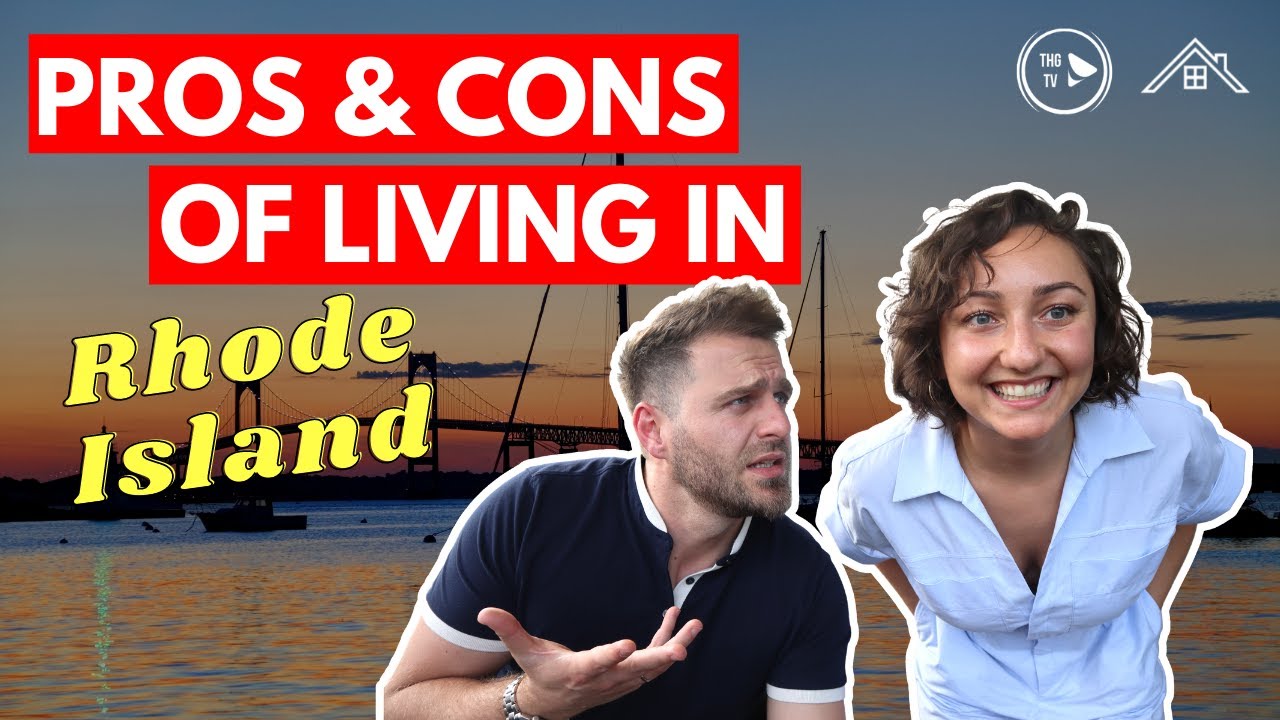Overview of Rhode Island
Rhode Island, the smallest state in the United States, is located in the New England region. With a total area of just 1,214 square miles, it is known for its beautiful coastline, historic charm, and vibrant cities. Despite its small size, Rhode Island has a rich cultural heritage and a diverse population. However, like any other state, it also faces its share of challenges and negative aspects that need to be addressed.
Population and Demographics
Rhode Island has a population of approximately 1.1 million people, making it the second most densely populated state in the country. The state has a diverse demographic makeup, with a blend of ethnicities and backgrounds. However, it also has a high poverty rate, with around 11.6% of its population living below the poverty line. This economic disparity can lead to social and economic challenges for many residents.
Economy and Job Market
Rhode Island has a mixed economy, with key industries including healthcare, education, tourism, and manufacturing. However, the state has struggled with a sluggish job market and high unemployment rates in recent years. The high cost of living and limited job opportunities pose challenges for residents, particularly for young professionals and those looking for higher-paying jobs.
Education and Schools
Rhode Island has a decentralized public school system, with each municipality responsible for its own schools. While the state has excellent higher education institutions like Brown University and the University of Rhode Island, its public schools face some challenges. The state has struggled with low graduation rates and achievement gaps, particularly among students from disadvantaged backgrounds. Efforts are being made to improve the education system and provide equal opportunities for all students.
Healthcare System
Rhode Island is known for its quality healthcare facilities and has a relatively high rate of insured residents. However, like many states, it faces challenges in terms of healthcare accessibility and affordability. Rising healthcare costs and a shortage of healthcare professionals in certain areas can limit access to care, particularly for those in rural and underserved communities.
Crime Rate and Safety
Rhode Island generally has a lower crime rate compared to the national average. However, certain areas within the state, particularly urban centers, face higher levels of crime and violence. Community outreach programs and law enforcement efforts are being implemented to improve safety and reduce crime rates in these areas.
Transportation and Infrastructure
Rhode Island’s transportation infrastructure faces some challenges, particularly in terms of aging roads and bridges. Traffic congestion is an issue in certain areas, and public transportation options are limited. However, the state is actively investing in infrastructure improvements and transportation initiatives to address these concerns and improve connectivity.
Environmental Concerns
Rhode Island faces environmental concerns due to its coastal location and vulnerability to climate change. Rising sea levels, increased storm frequency, and erosion pose significant challenges to the state’s infrastructure and ecosystems. Efforts are being made to mitigate these risks through sustainable development practices, coastal management plans, and renewable energy initiatives.
Natural Disasters
Rhode Island is susceptible to natural disasters, including hurricanes, floods, and winter storms. These events can cause significant damage to infrastructure, disrupt daily life, and pose risks to residents’ safety. The state has emergency management plans in place to respond to these disasters and minimize their impact on residents.
Cultural and Social Issues
Rhode Island is a culturally rich state with a vibrant arts scene and a deep sense of community. However, like any diverse population, it also faces social issues and challenges. These can include income inequality, racial disparities, and ongoing debates regarding social justice and inclusivity. Efforts are being made to address these issues through community engagement, education, and legislative measures.
Political Climate
Rhode Island has a progressive political climate, with a history of liberal policies in areas such as education, healthcare, and LGBTQ rights. However, it also faces challenges related to political corruption and a history of fiscal mismanagement. The state is working to address these issues through government transparency initiatives and ethical reforms.
Conclusion and Future Outlook
While Rhode Island has its share of negative aspects, it also possesses many positive attributes. The state’s small size allows for a strong sense of community and a close-knit society. Efforts are being made to address the challenges discussed above, such as improving the job market, enhancing education, and investing in infrastructure. By focusing on these areas and promoting sustainable development, Rhode Island can continue to grow and thrive, ensuring a brighter future for its residents.





